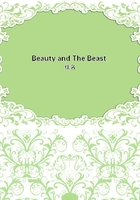
第83章 MRS. STRONGITHARM'S REPORT.(5)
Mr. Strongitharm insisted that I should, in some wise, prepare myself for my new duties, by reading various political works, and I conscientiously tried to do so--but, dear me! it was much more of a task than I supposed. We had all read the debate on our bill, of course; but I always skipped the dry, stupid stuff about the tariff, and finance, and stay laws and exemption laws, and railroad company squabbles; and for the life of me I can't see, to this day, what connection there is between these things and Women's Rights.
But, as I said, I did my best, with the help of Webster's Dictionary; although the further I went the less I liked it.
As election-day drew nearer, our prospects looked brighter. The Republican ticket, under the editorial head of the "Burroak Banner," with my name and Mrs. Bassett's among the men's, was such an evidence, that many women, notably opposed to the cause, said:
"We didn't want the right, but since we have it, we shall make use of it." This was exactly what Mrs. Whiston had foretold. We estimated that--taking the County tickets all over the State--we had about one-twentieth of the Republican, and one-fiftieth of the Democratic, nominations. This was far from being our due, but still it was a good beginning.
My husband insisted that I should go very early to the polls. I could scarcely restrain a tear of emotion as I gave my first ballot into the hands of the judges. There were not a dozen persons present, and the act did not produce the sensation which Iexpected. One man cried out: "Three cheers for our Assemblywoman!" and they gave them; and I thereupon returned home in the best spirits. I devoted the rest of the day to relieving poorer women, who could not have spared the time to vote, if I had not, meanwhile, looked after their children. The last was Nancy Black, the shoemaker's wife in our street, who kept me waiting upon her till it was quite dark. When she finally came, the skirt of her dress was ripped nearly off, her hair was down and her comb broken; but she was triumphant, for Sam Black was with her, and SOBER." The first time since we were married, Mrs.
Strongitharm!" she cried. Then she whispered to me, as I was leaving: "And I've killed HIS vote, anyhow!"When the count was made, our party was far ahead. Up to this time, I think, the men of both parties had believed that only a few women, here and there, would avail themselves of their new right--but they were roundly mistaken. Although only ten per cent. of the female voters went to the polls, yet three-fourths of them voted the Republican ticket, which increased the majority of that party, in the State, about eleven thousand.
It was amazing what an effect followed this result. The whole country would have rung with it, had we not been in the midst of war. Mr. Wrangle declared that he had always been an earnest advocate of the women's cause. Governor Battle, in his next message, congratulated the State on the signal success of the experiment, and the Democratic masses, smarting under their defeat, cursed their leaders for not having been sharp enough to conciliate the new element. The leaders themselves said nothing, and in a few weeks the rank and file recovered their cheerfulness. Even Mrs.
Whiston, with all her experience, was a little puzzled by this change of mood. Alas! she was far from guessing the correct explanation.
It was a great comfort to me that Mrs. Whiston was also elected to the Legislature. My husband had just then established his manufactory of patent self-scouring knife-blades (now so celebrated), and could not leave; so I was obliged to go up to Gaston all alone, when the session commenced. There were but four of us Assemblywomen, and although the men treated us with great courtesy, I was that nervous that I seemed to detect either commiseration or satire everywhere. Before I had even taken my seat, I was addressed by fifteen or twenty different gentlemen, either great capitalists, or great engineers, or distinguished lawyers, all interested in various schemes for developing the resources of our State by new railroads, canals or ferries. I then began to comprehend the grandeur of the Legislator's office. My voice could assist in making possible these magnificent improvements, and I promised it to all. Mr. Filch, President of the Shinnebaug and Great Western Consolidated Line, was so delighted with my appreciation of his plan for reducing the freight on grain from Nebraska, that he must have written extravagant accounts of me to his wife; for she sent me, at Christmas, one of the loveliest shawls I ever beheld.
I had frequently made short addresses at our public meetings, and was considered to have my share of self-possession; but I never could accustom myself to the keen, disturbing, irritating atmosphere of the Legislature. Everybody seemed wide-awake and aggressive, instead of pleasantly receptive; there were so many "points of order," and what not; such complete disregard, among the members, of each other's feelings; and, finally--a thing I could never understand, indeed--such inconsistency and lack of principle in the intercourse of the two parties. How could I feel assured of their sincerity, when I saw the very men chatting and laughing together, in the lobbies, ten minutes after they had been facing each other like angry lions in the debate?